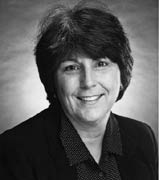French President François Hollande called on world powers Wednesday to overcome their "sometimes diverging interests" to unite in the fight against the Islamic State. On Tuesday, he will make his case in Washington to President Barack Obama and then travel to Moscow with the same message for President Vladimir Putin.
Both say they share Hollande's sense of urgency after last week's attacks in Paris, and in light of the threat of similar attacks in the United States and the downing of a Russian commercial jet by a presumed Islamic State bomb three weeks ago.
In recent days, Russia and the United States have seemed almost to be competing with each other to strike militant targets in Syria. This week, the U.S. Central Command said it hit 116 tanker trucks used to transport smuggled Islamic State oil in Syria, and various targets in and around Raqqa, the de facto militant capital.
On Wednesday, the Russian general staff said its airstrikes had destroyed 500 oil tankers and that its TU-22M3 long-range bombers, flying over Iraq and Iran from a base on the border of the Republic of Georgia, struck six sites in northern and eastern Syria.
But so far, U.S.-Russian cooperation extends only to "deconfliction" notifications to ensure that their war planes are not operating in the same airspace at the same time.
The Obama administration remains leery of Putin's eagerness to form a grand military coalition, to include intelligence sharing, against the Islamic State, also known as ISIL and ISIS. The administration wants first to test Putin's willingness to follow through on a political agreement to end Syria's civil war and to stop bombing U.S.-backed Syrian forces seeking to oust President Bashar al-Assad, a Russian client.
"If we get a better understanding with Russia" on the diplomatic front, Obama said Wednesday in the Philippines, "that obviously opens up more opportunities for coordination with respect to ISIL. And so the two things can't be completely separated."
"We're going to wait and see whether, in fact, Russia does end up devoting more attention to targets that are ISIL targets" than to the opposition, he said.
Administration officials said they welcome Hollande's efforts to coordinate more closely with Russia. But when he meets with Putin, they say, they hope his pitch will be for Moscow to help quickly settle the Syrian civil war so that they all can turn their full attention to the militants.
France agrees with Obama that Assad's continuance in power and the war against his own people have provided fertile territory for the terrorist group to grow.
"We are striking with the Russians and also with the Americans, because we have a common enemy, obviously, which is ISIS," Gérard Araud, France's ambassador to the United States, said in an MSNBC interview Wednesday.
"But you don't win a war with planes, so we need ground forces. And to have ground forces, we need to put an end to the Syrian civil war," Araud said. "So I think it's very important that our military coalition is transformed also into a political coalition and so that we have a political transition in Syria."
On that matter, he added, "we are on a different page with the Russians and we are very close to our American friends."
But understanding and agreeing with the administration's determination to bring leverage to bear on the Russians has not alleviated European anxiety and the simultaneous conviction that something major needs to be done, and immediately.
In his upcoming visits, Araud said, Hollande hopes "to really try to impress on President Obama and on President Putin the sense of urgency. We can't wait 18 months, two years; we have to solve it right now."
Another senior French diplomat, speaking on the condition of anonymity about internal discussions in Paris, said that "because of our different geography, we have a different vision of the crisis."
Whatever tensions the terrorist actions have provoked in the United States, there is a sense of looming catastrophe on the other side of the Atlantic. The administration needs to understand that "the core interests of Europeans, your best allies, are at stake. We have to act. And we have to act quickly," a European diplomat said.
"The crisis is beginning to have the result of destabilizing Europe," this diplomat said. "There is an emergency. It's the foreign fighters, but it's also the migrant crisis, which is dividing Europeans."
Hundreds of thousands of Syrians fleeing both the civil war and the Islamic State have sought refuge in Europe, leading to political and humanitarian turmoil.
One of the perpetrators of the Paris attacks may have traveled among migrants legitimately seeking refuge, and there are fears that other militants are among the migrants fleeing danger and are also planning attacks.
Secretary of State John Kerry hopes to use the rising anxiety in Europe and Russia to forge a negotiated solution to the civil war that has eluded the international community and the Syrians for the past four years.
At a meeting last weekend in Vienna, members of the U.S.-led coalition supporting the Syrian opposition met with Assad backers Russia and Iran and agreed to a tight timeline for forming a transitional government in Syria.
The participants left the issue that most divides them - Assad's future - to one side while they formulated a several-step process that Kerry said could lead to a cease-fire within weeks.
But several goals must be met before that process can begin, including achieving agreement within the deeply divided opposition groups over who will represent them in talks with the Syrian government.



 Contact The Editor
Contact The Editor
 Articles By This Author
Articles By This Author